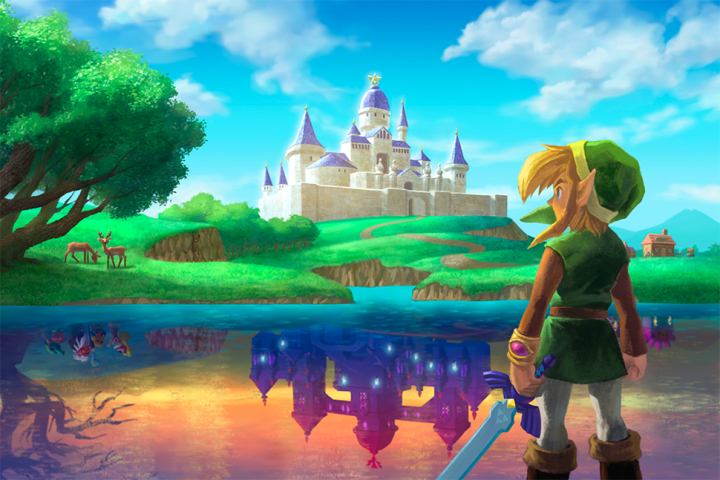
I remember the first time I played a video game. It was Pole Position, on the Atari 2600 that my dad left behind when my parents separated. That chunky little racecar driving ever forward into an unchanging horizon sparked something immediately. Where most saw blocky graphics, my developing imagination saw a fully realized world. A place where anything was possible. Now, more than 30 years later, the sense of wonder that experience left me with still lingers. And I don’t even really like racing games.
I thought about that Pole Position moment a lot as I sifted through 2013’s bountiful offering of interactive entertainment. About the sense of wonder that I felt three decades ago when I first realized the joystick in my hand could influence the world pictured on the TV. Again and again this year, I found myself reflecting on that formative moment.
It’s an exciting time to be playing video games. Here’s a closer look at what moved me and why in 2013. What did you play this year that struck an unexpected chord?
Rogue Legacy

Rogue Legacy got its hooks in me good. The insanely deep progression system couples really well with the retro 2D side-scrolling gameplay that Cellar Door Games assembled. Playing it fills me with nostalgia for bygone afternoons spent at my local Nathan’s game room. Coin-op machines are designed to extract as many quarters as possible from players, and Rogue Legacy’s progression tree taps into that “just one more” mentality for me. “Maybe I’ll get that long-sought unlock on this run,” again and again, for hours.
More than anything, Rogue Legacy fills me with the same sense of excitement that I used to get from pumping quarters into bleeping machines back in the ‘80s and ‘90s. Just one more.
Device 6

No game in 2013 left me more puzzled, then satisfied, than Simogo’s Device 6 did. In fact, the game’s core appeal seems to be built entirely on the tension between puzzlement and satisfaction. First I furrowed my brow trying to figure out just what the hell is going on with this stupid, broken e-book, then I bellowed “AH HA!” – definitely scaring some of my fellow subway passengers in the process – as the answer came to me. So many games encourage deductive reasoning, but Device 6 never drove me to seek out answers from an ever-accessible Internet. This is a journey I was excited to be stumped by.
The Legend of Zelda: A Link Between Worlds

There’s no other way to put it: The Legend of Zelda: A Link Between Worlds made me root for Nintendo again. I’ve regarded the company with increasingly raised eyebrows in recent years as it’s moved further and further away from delivering the sort of experiences that I grew up with. Remember the original Metroid? Kid Icarus? The original Zelda?! These are games that just threw you in, knowing full well that you’d fail a bunch before you actually figured things out. We don’t see anything like that from Nintendo anymore. Everything’s carefully curated. Tailored. All under the auspices of that filthiest of game developer cop-outs: It’s family-friendly.
A Link Between Worlds remembers that there’s value in discovery, and that’s what I love about it. I explore the world, the world gets bigger. I explore it some more, it gets bigger still. And wait, what’s that? HOLY CRAP there’s a whole other world now! It feels like Nintendo re-capturing a long-lost piece of itself. I hope we see more like it. That’s how A Link Between Worlds makes me feel: hopeful.
The Stanley Parable

Poor Stanley. Again and again, he runs through the same cycle of events, only to find himself right back where he started every time. I see him as the perfect meta-embodiment of a video-game protagonist. The particulars of his passage through a mundane office and his eventual, terrible demise may change, but the process remains the same every time: follow path, listen for cues, repeat. I love the idea that we, as gamers, are mice in a maze, and I really appreciate the way Stanley gets me thinking about that notion.
Gone Home

Gone Home made me cry, but that’s the least of its successes. The Fullbright Company’s stellar story earned Game of the Year honors from Digital Trends for good reason. It’s impossible to talk about it in detail without spoiling the emotional heart of the story. Where most games find their appeal in the play between risk and reward, Gone Home is more of a journey. I felt joy and heartbreak, fear and relief in equal measures as each new scripted plot thread unraveled, all while triumphantly piecing together clues that painted a more detailed picture around the big beats. All of it feeds into an emotionally devastating finale that left me breathless; yes, games can tell stories that matter.


